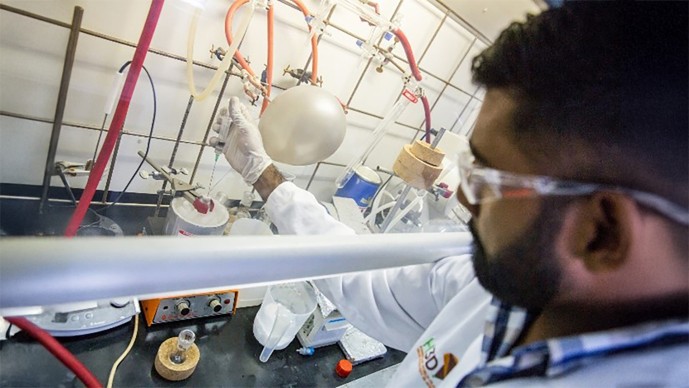Africa Drug Discovery

Drug discovery is a capital-intensive process that depends on large teams of highly trained experts and advanced equipment and infrastructure, which makes it difficult to do in under-resourced institutions like many of those on the African continent. Therefore, drug discovery has been dominated by the pharmaceutical industry and a relatively small number of academic centers concentrated in high-income countries.
Kelly Chibale, a Zambian medicinal chemist who spent time at Pfizer, has been working for two decades to fill that gap. In 2010, he created the Holistic Drug Discovery and Development (H3D) Centre at the University of Cape Town (UCT), one of the best-resourced universities in Africa, to take an industry-style approach to drug discovery on the continent. His goal was to build an African institution that could recruit, train, and retain African scientists, join global collaborations for global health drug discovery, and lay the foundations for cutting-edge drug discovery for diseases of local concern in Africa.
The Gates Foundation has supported malaria and TB discovery projects at H3D, and they are bearing fruit. Working with the Medicines for Malaria Venture, H3D optimized and selected a clinical drug candidate for malaria, a Plasmodium kinase inhibitor, the first antimalarial developed in Africa to progress to human trials. Although these trials were eventually stopped because of toxicity, H3D has developed extensive expertise in Plasmodium kinase targets. H3D has also joined the global consortia the Tuberculosis Drug Accelerator (TBDA) and Malaria Drug Accelerator (MalDA), which give researchers access to lead compounds and global research collaborations.
To expand drug discovery in Africa beyond H3D requires a novel approach, because it is challenging to replicate the end-to-end industry model at institutions lacking the resources available at UCT. With support from the Grand Challenges teams in Seattle and in Nairobi, Chibale and other partners conceived of the Grand Challenges-Africa Drug Discovery Accelerator (GC-ADDA), which brings together scientists from many countries into a single, coordinated drug discovery enterprise. GC-ADDA, formally launched in 2024, is currently pursuing four individual drug discovery programs with participants from Cameroon, Ghana, Kenya, Mali, South Africa, and Zimbabwe. In so doing, it is also creating networks of researchers whose work is complementary and who will continue to work together on an ongoing basis. Members of GC-ADDA rely on H3D as a hub for mentoring, training, access to global and regional networks, and access to facilities and equipment lacking at their home institutions.
As of 2025, the individual projects are still relatively new - and the idea of the distributed African drug discovery enterprise is even newer. As GC-ADDA continues to mature, however, the innovative underlying approach to drug discovery may prove to be a model for future scientific endeavors in low-resource settings.